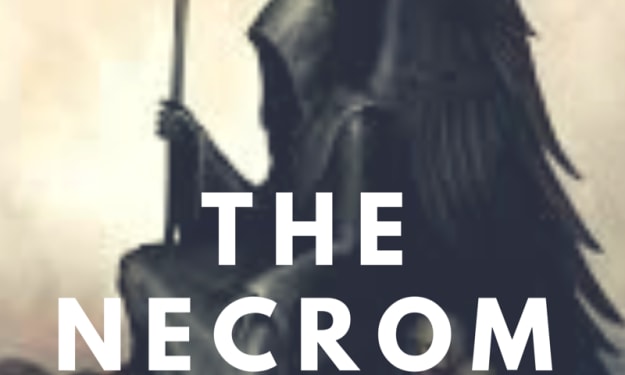The Noonday Demon
Depression’s at your door.

The Noonday Demon
By: Xara B. Williams
It is one of the most supreme normalcy of life for The Human to endure trauma or tragedy one way or another and in any shape or form. Also common is the fallacious ideology of “getting over” this trauma. It is ignorantly believed that one could fall prey to the Noonday Demon (1) and simply shrug off its clutches and continue about their lives, and this dangerous belief leaves victims vulnerable to the shock of realizing the truth. The truth being, one does not ‘get over depression.’ One does not 'escape’ its emotional upset. One never ‘gets over depression’ because it is the significant loss of happiness and the privation cannot simply be forgotten. We as humans strive for the Ultimate Happiness, or at least a semblance of the feeling, and when this is stripped from our grasp, taken away from our embraces for even just a moment, we are left traumatised and scrambling for any means of coping. Surviving. But this sound loss fuels us with a means to fight for our happiness. This is the long term effect of the Noonday Demon.
Famous Greek philosopher and scientist Aristotle said it best, "Happiness is the meaning and purpose of life, the whole aim and end of human existence." Aristotle proves The Human's strive for happiness analogous to the purpose that of a knife and that of medicine. As a knife's purpose is to cut and medicine to heal, The Human's purpose is happiness as our subgoals in life all are in preparation of the Ultimate Happiness. We desire what we desire, to fulfill our need to be happy just as we work to do what needs to be done to procure our happiness. And so, with this intention in mind, the significance of our happiness is embedded into ourselves: morals, ethics, and emotional wellness. The need for happiness becomes an innate ideology that wedges itself into our actions throughout life and so if this is this case, as it is so said by philosopher Aristotle, our loss of such paramount foundation of our lives is apt to impact trauma onto ourselves. So, let’s continue to discuss: Why do humans strive for happiness?
When we make the choice to live, we choose to endure as to live is to suffer. This decision pushes The Human to abide the traumas of life and the incurrence of depression as The Human’s goal is Ultimate Happiness. Whether through poetic justice or the simple truth in the notion, the more one suffers the more rewarding one's happiness is. In the same instance, the worst the life the better the reward. “Those who have suffered the most, with exceptions, are the happiest of all” (Tenhouten). So though our depression never leaves us, terrible as it may sound, once this level of sadness is experienced, one feels empty without it. Because of the reality of the feeling, everything is pushed into perspective and with this, our feelings and emotions become more prognative. Oh yes, others are happy but once you've been touched by the Noonday Demon, you are the happiest, because you have felt the pit of sadness therefore it's only logical that you can exploit the depths of happiness. These are the effects of the Noonday Demon.
I have experienced depression. I am experiencing depression. The dark hopelessness that is like no other; the feeling as if your life's your own only that it isn't anymore. You have no recollection of who you were before the depression hits. I have no recollection of who I was before the depression hit. How I smiled, my happiness. I was diagnosed with Major Depression, but I didn't need a diagnostic to tell me I had a demon at my door. It was in the slowness of my speech and movements. The frequent tears I cried every night as if on routine. But it was those little bits of happiness that made me keep on. I was so far into my sadness that feeling any semblance of happiness meant the world to me. It hit me so hard that on my worst day, as I sat at the back of my English class, I cried to myself. This was the long lasting effect of the Noonday Demon. I had never escaped its clutches nor had I ever gotten over it. But I learned how to cope and I learnt the positive aspects: I felt harder than anyone else, sadness, yes, but other emotions too. Love. Happiness. I felt them deeply. And so I was glad to have been touched by the Noonday Demon. Depression was like a duality. It rendered me hopeless but opened my eyes to true happiness.
*
Footnote 1: The Noonday Demon is another term for Depression. Referencing Andrew Solomon's The Noonday Demon: An Atlas of Depression
Works Cited:
“Aristotle on Happiness.” Psychology Today
About the Creator
Xara B. Williams
“ Creativity is Intelligence having fun “






Comments
There are no comments for this story
Be the first to respond and start the conversation.